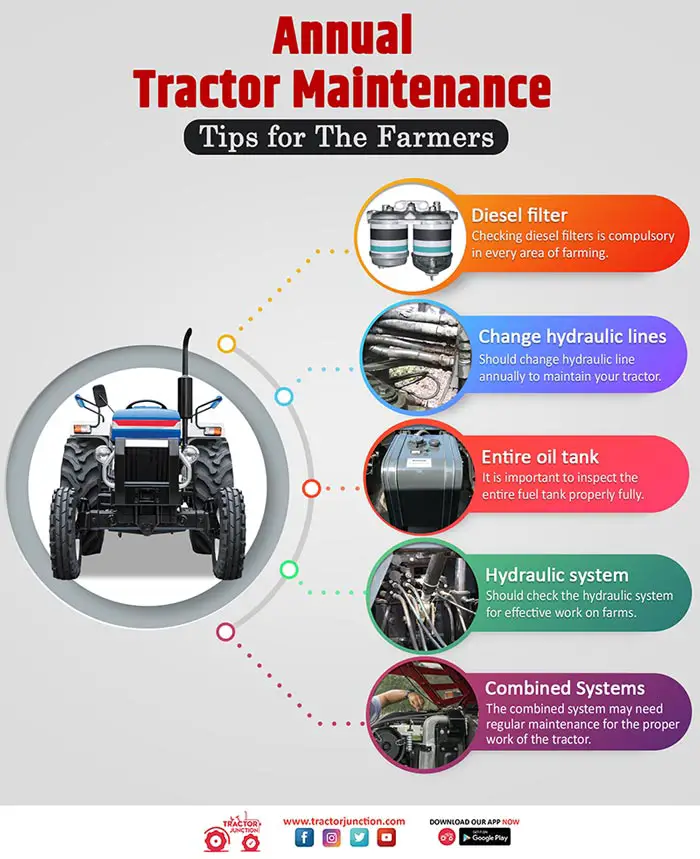This post may contain affiliate links which means I may receive a commission for purchases made through links. Learn more on my Private Policy page.
Maintaining the hydraulic system of your farm machinery is essential to ensure its smooth and efficient operation. From tractors to harvesters, these machines heavily rely on hydraulics to perform various tasks, such as lifting, steering, and operating attachments. Taking proper care of your hydraulic system not only extends its lifespan but also reduces the risk of costly breakdowns. Here, we will guide you through some essential maintenance tips to keep your hydraulic system running smoothly, allowing you to maximize productivity on your farm.
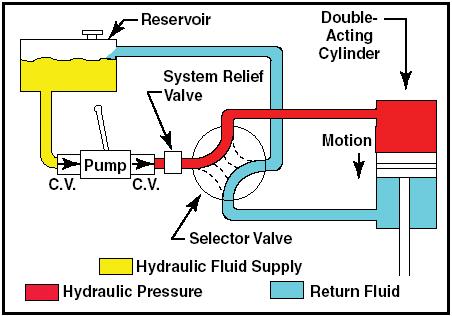
This image is property of stratson.eu.
Importance of Maintaining the Hydraulic System
Maintaining the hydraulic system of your farm machinery is crucial for several reasons. Firstly, it helps prevent breakdowns and costly repairs. Regular maintenance and inspection allow you to identify potential issues early on, saving you from unexpected downtime and expensive repairs. By taking care of your hydraulic system, you can ensure that it continues to function smoothly, keeping your machinery operational and minimizing any disruptions to your farming operations.
Secondly, maintaining the hydraulic system increases efficiency and productivity. When your hydraulic system is well-maintained, it operates at optimum levels, maximizing the efficiency of your machinery. This means that tasks can be completed more quickly and with less effort, ultimately boosting your overall productivity. By regularly inspecting and maintaining your hydraulic system, you can keep it running at its best, allowing you to get the most out of your farm machinery.
Lastly, proper maintenance ensures safety for both operators and livestock. Hydraulic systems are widely used in farm machinery to power various components such as loaders, lifters, and attachments. If not properly maintained, a malfunctioning hydraulic system can pose serious safety risks to operators and bystanders. Additionally, the smooth operation of hydraulic-powered equipment is essential to ensure the safety and well-being of livestock on the farm. Regular maintenance and inspections help identify any potential hazards or malfunctions, allowing you to address them promptly and ensure the safety of everyone involved.
Regular Inspection and Maintenance Schedule
One of the key aspects of maintaining a hydraulic system is following a regular inspection and maintenance schedule. This schedule allows you to stay proactive in identifying any issues before they escalate into major problems. Here are some important steps to include in your inspection and maintenance routine:
Inspect for leaks and damage:
Regularly check all hydraulic components for leaks or damage. Inspect hoses, fittings, and connections for any signs of wear, cracks, or leaks. Additionally, examine cylinders, seals, and valves for any potential leaks or damage. Identifying and addressing leaks or damage early on can prevent further complications and ensure the integrity of your hydraulic system.
Check hydraulic fluid levels:
Maintaining proper hydraulic fluid levels is essential to the performance of your system. Regularly check the fluid levels and top up as necessary. Low fluid levels can cause inefficient operation and damage to components. Additionally, ensure that you are using the correct type of hydraulic fluid for your machinery, as using the wrong type can lead to poor performance and potential damage.
Replace filters regularly:
Hydraulic filters play a crucial role in keeping your hydraulic system clean and free from contaminants. Over time, these filters can become clogged with debris and particles, compromising the performance and longevity of your system. Therefore, it is important to replace hydraulic filters as recommended by the manufacturer or according to your maintenance schedule. Regularly replacing the filters will help maintain the efficiency of your system and extend its lifespan.
Hydraulic Fluid Maintenance
Proper maintenance of hydraulic fluid is vital for the smooth operation of your hydraulic system. Here are a few important aspects to consider:
Understanding the importance of hydraulic fluid:
Hydraulic fluid serves as the lifeblood of your hydraulic system, providing the necessary lubrication, cooling, and transmission of power. It is important to understand that hydraulic fluid is not just an ordinary lubricant; it also acts as a sealant and protects against corrosion.
Choosing the right hydraulic fluid:
Selecting the correct hydraulic fluid for your machinery is crucial. Different hydraulic systems have specific requirements, and using the wrong fluid can result in poor performance and costly damage. Consult your machinery’s manual or manufacturer to determine the appropriate type of hydraulic fluid for your system. It is important to consider factors such as viscosity, temperature range, and compatibility with seals and materials.
Checking and maintaining fluid quality:
Regularly monitor the quality of your hydraulic fluid to ensure optimal performance. Over time, hydraulic fluid can become contaminated with dirt, water, or metal particles, which can negatively impact system performance. Use appropriate testing methods, such as analyzing viscosity and acidity, to assess the condition of your hydraulic fluid. If necessary, plan for regular fluid changes and implement a filtration system to remove contaminants and maintain the cleanliness of the fluid.
Maintaining Hydraulic Hoses and Lines
The hoses and lines in your hydraulic system are vital components that require regular maintenance to ensure their longevity and performance. Here are some important steps to include in your maintenance routine:
Inspecting hoses for wear and damage:
Regularly inspect all hydraulic hoses for signs of wear, cracking, or other damage. Hoses are subjected to constant pressure and stress, which can lead to deterioration over time. It is important to identify any signs of wear early on and replace damaged hoses promptly. Failing to do so can result in leaks, reduced hydraulic pressure, and potential safety hazards.
Replacing damaged hoses:
If you notice any signs of wear or damage during your inspections, it is crucial to replace the damaged hoses immediately. Delaying the replacement can lead to further damage and potential hydraulic system failure. When replacing hoses, ensure that you use hoses of the correct specifications and follow proper installation procedures to maintain the integrity of your hydraulic system.
Cleaning hydraulic lines:
Regularly cleaning hydraulic lines helps prevent the accumulation of debris and contaminants, which can clog the lines and affect the performance of your system. Use appropriate cleaning solutions and procedures recommended by the manufacturer to flush out any accumulated dirt or particles. Cleaning the hydraulic lines also provides an opportunity to inspect them for any signs of damage or wear, allowing you to address issues promptly.
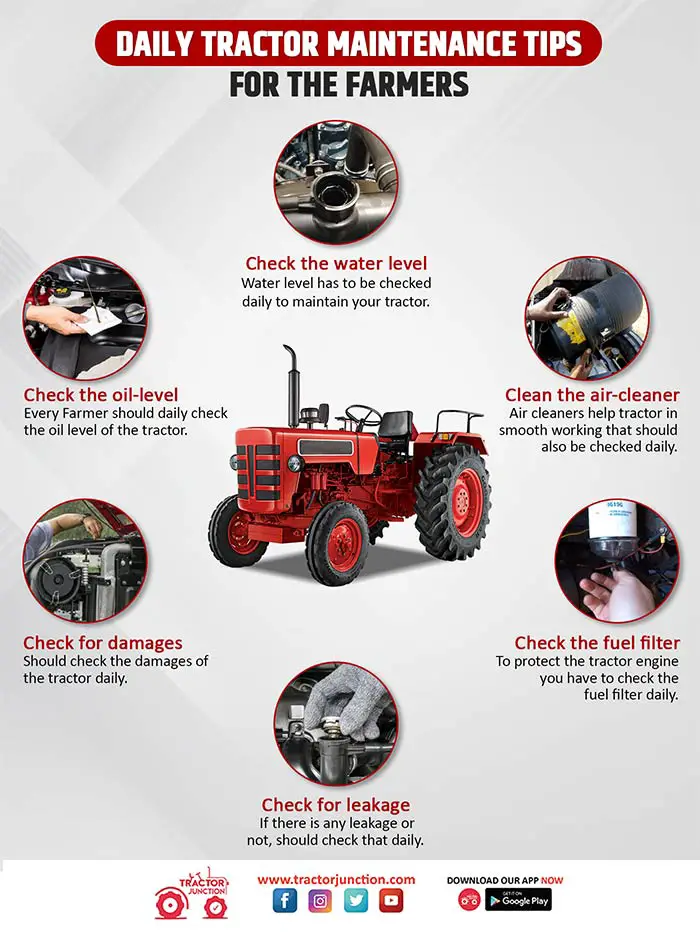
This image is property of www.tractorjunction.com.
Hydraulic Pump Maintenance
The hydraulic pump is the heart of your hydraulic system, responsible for generating the necessary pressure to power your machinery. Proper maintenance of the pump is crucial for the overall performance and longevity of your hydraulic system. Here are some important maintenance steps for the hydraulic pump:
Checking pump performance and fluid pressure:
Regularly monitor the performance of your hydraulic pump and ensure that it is delivering the required fluid pressure for your machinery. Use pressure gauges and other monitoring tools as recommended by the manufacturer to assess the pump’s performance. Any significant deviations from the recommended pressure levels may indicate a problem with the pump that needs to be addressed promptly.
Inspecting pump for leaks and abnormal noises:
Regularly inspect the hydraulic pump for any signs of leaks, such as oil stains or fluid pooling around the pump. Leaks can indicate worn seals or other issues that can affect the performance of the pump. Additionally, listen for any abnormal noises coming from the pump, as these can be signs of impending failure. If you notice any leaks or abnormal noises, consult a professional technician to diagnose and resolve the issue.
Cleaning and lubricating the pump:
Cleaning and lubricating the hydraulic pump are important maintenance tasks that help prevent the buildup of contaminants and ensure smooth operation. Follow the manufacturer’s recommendations for cleaning procedures and use appropriate cleaning agents. Additionally, lubricate the pump according to the manufacturer’s specifications to reduce friction and wear. Regular cleaning and lubrication help extend the life of the pump and maintain its efficiency.
Proper Storage and Handling Practices
Proper storage and handling practices are essential for ensuring the longevity and performance of your hydraulic system, especially during periods of non-use or when preparing for seasonal changes. Here are some important practices to follow:
Cleaning machinery before storage:
Before storing your farm machinery, ensure thorough cleaning to remove any dirt, debris, or corrosive substances. Use appropriate cleaning agents and methods recommended by the machinery manufacturer. Cleaning the machinery before storage helps prevent the buildup of contaminants and protects against corrosion during periods of inactivity.
Avoiding exposure to extreme temperatures:
Protect your hydraulic system from exposure to extreme temperatures, both hot and cold. Extreme heat can degrade the hydraulic fluid and other components, while extreme cold can lead to fluid thickening or even freezing. Whenever possible, store your machinery in a climate-controlled environment or use protective covers to shield it from extreme temperatures.
Using proper lifting and storage techniques:
When moving or storing your machinery, ensure that you use proper lifting techniques and equipment to prevent damage to the hydraulic system. Follow the manufacturer’s guidelines for lifting capacities and attachments, and avoid placing excessive strain on the hydraulic components. Improper handling can lead to breakage, leaks, and other damage that can compromise the performance of your hydraulic system.
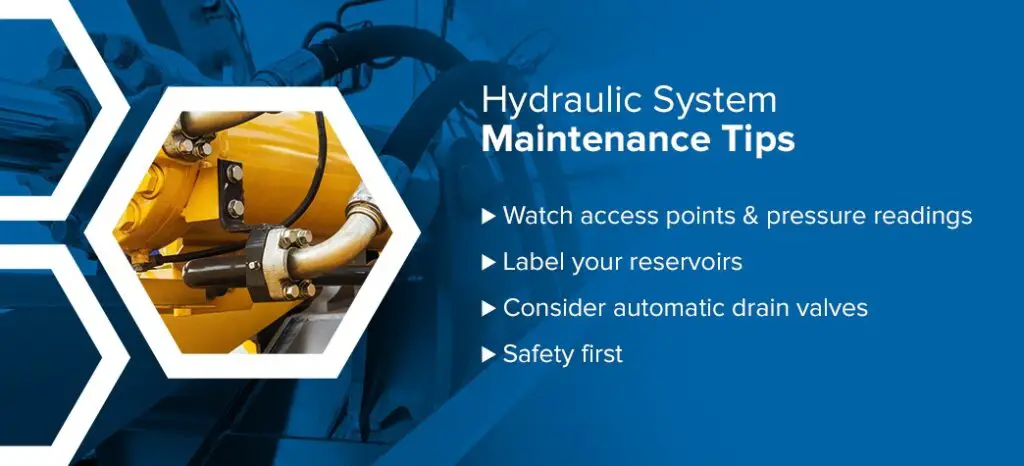
This image is property of yorkpmh.com.
Bleeding and Flushing the Hydraulic System
Bleeding and flushing the hydraulic system are important maintenance tasks that help remove air and contaminants from the system, ensuring optimal performance and longevity. Here’s a step-by-step process to follow:
Understanding the importance of bleeding and flushing:
Bleeding the hydraulic system involves removing any trapped air pockets, which can hinder the proper operation of the system. Flushing, on the other hand, involves removing any contaminants present in the hydraulic system. Both processes are essential to maintain the integrity and performance of your system.
Step-by-step process of bleeding the system:
To bleed the hydraulic system, start by locating the bleed valves on the components or cylinders. Open the valves one at a time, allowing any air to escape until only fluid flows out consistently. Ensure that you have a container ready to catch the fluid. Repeat the process for all bleed valves in the system, starting from the component nearest to the hydraulic pump and working your way towards the end of the system.
Flushing the system to remove contaminants:
Flushing the hydraulic system helps remove any dirt, debris, or other contaminants that may have accumulated during the operation. To flush the system, drain the existing hydraulic fluid and replace it with a flushing fluid recommended by the manufacturer. Operate the system for a brief period while monitoring the fluid flow. Once the flushing fluid is circulated through the system, drain it and replace it with fresh hydraulic fluid. This process helps ensure the cleanliness and optimal performance of your hydraulic system.
Winterizing the Hydraulic System
Preparing your hydraulic system for the cold winter season is essential to protect it from potential damage and ensure its performance. Here are some important steps to take when winterizing your hydraulic system:
Preparing for cold weather conditions:
Before the winter season arrives, ensure that your machinery is properly prepared. Inspect the hydraulic system for any signs of wear or damage and address them promptly. Additionally, check the insulation and seals of your machinery to prevent cold air from reaching the hydraulic system. By preparing in advance, you can mitigate the risks associated with cold weather and ensure the longevity of your hydraulic system.
Using the right hydraulic fluid for low temperatures:
Low temperatures can affect the performance of hydraulic fluid, causing it to thicken or even freeze, which can result in system failures. To prevent this, ensure that you are using hydraulic fluid that is suitable for low-temperature conditions. Consult the manufacturer’s recommendations or seek professional advice to choose the appropriate fluid for your specific climate.
Protecting the system from freezing:
Take measures to protect your hydraulic system from freezing temperatures. If possible, store your machinery in a heated environment or use insulated covers to shield it from extreme cold. Additionally, consider using auxiliary heaters or heat tracing devices to keep the hydraulic system warm during periods of inactivity. By preventing freezing, you can avoid potential damage to the system and ensure its optimal performance during the winter months.
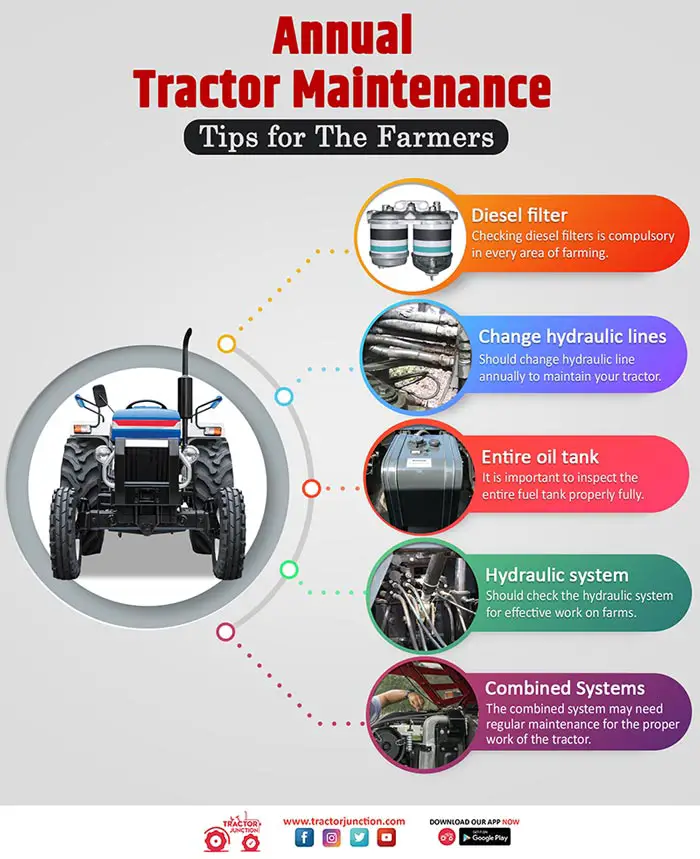
This image is property of www.tractorjunction.com.
Training and Education for Operators
Providing proper training and education to machinery operators is crucial for maintaining the hydraulic system effectively. Here’s why it matters and some steps to ensure operators understand the importance of maintenance:
Providing proper training for machinery operators:
Training operators on the proper operation and maintenance of farm machinery is essential to minimize the risk of damage or malfunction. Ensure that all operators receive comprehensive training on the hydraulic system, including proper usage, regular maintenance routines, and identification of potential issues. Well-trained operators are more likely to detect problems early on and take appropriate action, contributing to the longevity and efficiency of the hydraulic system.
Ensuring operators understand the hydraulic system:
Operators should have a good understanding of how the hydraulic system works and its importance within the machinery. Educate them on the function and components of the hydraulic system, as well as the potential consequences of neglecting proper maintenance. Ensure that operators are aware of any specific maintenance tasks they are responsible for, such as regular inspections, fluid level checks, or reporting any abnormalities. Encouraging an atmosphere of accountability and ownership helps create a culture of proactive maintenance.
Promoting maintenance best practices:
Regularly communicate and reinforce the importance of maintaining the hydraulic system. Emphasize the benefits of proactive maintenance, such as increased efficiency, minimized downtime, and improved safety. Encourage operators to report any concerns or abnormalities promptly, and provide a clear process for them to do so. By promoting a maintenance-focused culture, you can significantly contribute to the longevity and reliability of your hydraulic system.
Expert Tips and Troubleshooting
Even with regular maintenance, hydraulic systems may encounter issues from time to time. Here are some expert tips and troubleshooting steps to help you resolve common problems:
Seeking professional advice and guidance:
If you encounter complex issues or are unsure about the cause of a problem, it is always recommended to seek professional advice. A qualified hydraulic technician can diagnose and resolve issues effectively, minimizing the risk of further damage or costly repairs. Don’t hesitate to reach out to experts who can provide guidance tailored to your specific hydraulic system and machinery.
Common hydraulic system issues and solutions:
Some common issues that you may encounter with your hydraulic system include leaks, loss of pressure, and abnormal noises. Leaks can often be resolved by inspecting and tightening connections or replacing damaged seals. Loss of pressure may be attributed to issues such as clogged filters or worn-out pump components, requiring thorough inspection and potential replacements. Abnormal noises can indicate problems with the pump, valves, or other components, necessitating further investigation by a professional.
Tips for extending the life of the hydraulic system:
To extend the life of your hydraulic system, consider implementing the following tips:
- Follow a regular maintenance schedule and perform inspections as recommended by the manufacturer.
- Keep the hydraulic system clean and free from dirt, debris, and contaminants.
- Use high-quality hydraulic fluid and replace it regularly, adhering to the manufacturer’s guidelines.
- Train operators on proper usage and maintenance practices.
- Address any issues promptly to prevent further damage or system failure.
- Maintain proper fluid levels and pressure to ensure optimal performance.
- Store and handle machinery according to manufacturer’s recommendations.
- Monitor the performance of the hydraulic system and seek professional assistance if needed.
By implementing these tips and proactively maintaining your hydraulic system, you can maximize its lifespan, minimize downtime, and ensure the efficient operation of your farm machinery.
In conclusion, proper maintenance of the hydraulic system in your farm machinery is essential to prevent breakdowns, increase efficiency, and ensure the safety of operators and livestock. By following a regular inspection and maintenance schedule, maintaining hydraulic fluid quality, taking care of hoses and lines, and properly maintaining the hydraulic pump, you can significantly contribute to the longevity and performance of your system. Additionally, adopting proper storage and handling practices, bleeding and flushing the system, winterizing appropriately, providing training and education to operators, and implementing expert tips can further enhance the maintenance and reliability of your hydraulic system. Remember, a well-maintained hydraulic system leads to smooth operations, increased productivity, and minimized repair costs, ultimately benefiting your farming operations as a whole.
This image is property of www.dtnpf.com.
This post may contain affiliate links which means I may receive a commission for purchases made through links. Learn more on my Private Policy page.

